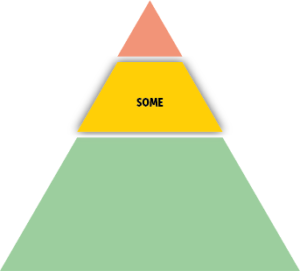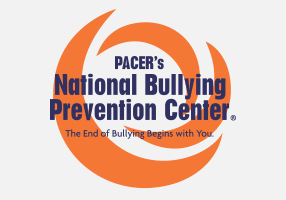Behavior Intervention Spotlight – October 2022
Published October 10, 2022
Bullying Prevention and Intervention
Free Resources to Prevent Bullying
Pacer’s National Bullying Prevention Center, one initiator of Bullying Prevention Month, and creator of Unity Day for promoting kindness, acceptance and inclusion, offers an extensive collection of FREE resources under Kids Against Bullying for elementary students, and another under Teens Against Bullying for secondary students. Some of these are linked below.
Pacer Center Resources
- Quick Guide | Bullying Prevention 101 | Elementary | Secondary
- Quiz for discussion or pre-post assessment | Elementary | Secondary
- Single lesson plan for 30-60 minutes | Elementary | Secondary
- Week long exploration of bullying prevention | Elementary | Secondary
- Videos | Elementary | Secondary
Be Someone’s Hero
Show this engaging video to staff, students and parents! We think it will stimulate good conversations in your school community about bullying, the need to prevent it and the need to intervene in it. We would love to hear how you used this excellent resource from the Centers for Disease Control and Prevention (CDC) website.
Do You Bully? Helping Students Identify and Change Their Bullying Behavior
 Would you like to help students assess their own behavior in regard to bullying? Have they at times been bullied? Have they witnessed bullying? Have they bullied others?
Would you like to help students assess their own behavior in regard to bullying? Have they at times been bullied? Have they witnessed bullying? Have they bullied others?
Students who have engaged in bullying others need caring adults to help them change their behavior.
In a section titled Do You Bully? Pacer Center Teens Against Bullying offers both an online quiz and a printable quiz to help individuals identify bullying behavior in themselves. Depending upon the capability of the individual user, the quiz could be used independently or with the help of an adult.
Questions that follow the quizzes encourage thinking about one’s feelings and attitudes, as well as the consequences of bullying behavior to self and others. Adult guidance may or may not be needed.
A person who has bullied others may discover, using this section, a tendency to use bullying behavior to:
- elevate self
- gain acceptance or positive attention from certain other people
- feel better after being bullied by someone else
- feel in control
A person who has bullied others is encouraged to recognize bullying for the behavior that it is, and to recognize that behavior can be changed!
A person who has bullied others is encouraged to seek help from a trusted adult in tackling this behavior change.
Finally, a Student Action Plan Against Bullying worksheet (available in multiple languages!), is a useful planning tool “whether you are the target of bullying, a witness, or the person who bullies,” is available for students to use independently, in groups, or with adult assistance.



